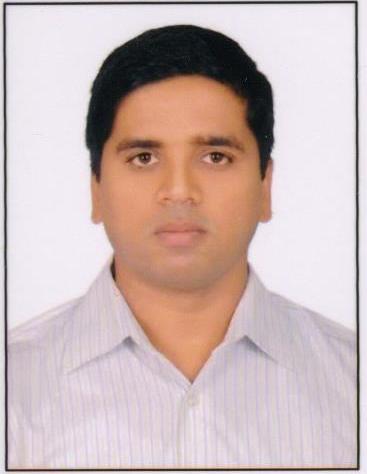Bioprocess Engineering
Course Attendees
Still no participant
Course Reviews
Still no reviews
Course Name : Bioprocess Engineering
Code(Credit) : CUTM 1117(3-1-1)
Course Objectives
• To study the historical development of bio process technology.
• To evaluate the kinetics and thermodynamics of enzymatic process
• To study the stoichiometry and energetics of cell growth and product formation
• To evaluate the kinetics and mechanism of microbial growth
Learning Outcomes
This course enable the student to understand the practical aspects of bioprocess engineering and the role of bioprocess engineer in industry.
Course Syllabus
Module I: Title (4 hrs) Introduction to bioprocess engineering
Introduction to bioprocess engineering; Concept of Bioprocess; Role of bioprocess engineer in the biotechnology industry;
Practice:Culture media preparation (Solid)
Module II: (5 hrs ) Integrated bioprocess
Outline of an integrated bioprocess and the various (upstream and downstream) unit operations involved in bioprocesses; Generalized process flow sheets; A brief survey of organisms; processes, products and market economics relating to modern industrial biotechnology
Practice: Culture media preparation (Liquid broth)
Module III: Title (4 hrs) Kinetics of microbial growth
Phases of cell growth in batch cultures; Simple unstructured kinetic models for microbial growth; Monod model; Growth of filamentous organisms.
Practice: Bacterial growth curve
Module IV: Title (4 hrs) Microbial growth and product formation
Growth associated (primary) and non-growth associated (secondary) product formation kinetics, Leudking – Piret models, substrate and product inhibition on cell growth and product formation.
Practice: Study of growth kinetics
Module V: Title (4 hrs) Downstream processing
Introduction to processing; Removal of microbial cells and solid matter; Foam separation; precipitation; filtration, centrifugation, cell disruptions, liquid-liquid extraction.
Module VI: Title (4 hrs) Techniques used for downstream processing
Chromatography; Membrane process; Drying and crystallization; Effluent treatment: C.O.D treatment and disposal of effluents.
Module VII: Title (5 hrs) Industrial production of chemicals
Whole cell immobilization and their industrial applications; Industrial production of chemicals: Alcohol (ethanol), Acids (Citric, Acidic and Gluconic) solvents (glycerol, acetone, butanol) Antibiotics (penicillin, streptomycin, tetracycline) Aminoacids (lysine, glutamic acid), Single cell protein
Project: Growth kinetics of different bacteria available in our environment
Text Books:
1. Paulin M. Doran, Bioprocess Engineering Principles, Second Edition
Reference Books:
1. Michael L. Shuler, Fikret Kargi, Mathew Delisa, Bioprocess Engineering, Third Edition, Prentice Hall.
2. Pau Loke Show, Chien wei Ooi, Tau Chuan Ling, Bioprocess Engineering, CRC press, 1st Edition
Course outline Prepared by; Dr. Ranjan Kumar Sahoo Date:08-06-2020
Source of reference: NSQF
Session Plan
Session 1
Introduction to Bioprocess Engineering
Introduction to Bioprocess Engineering PPT
Session 7
Project: Growth kinetics of different bacteria isolated locally
Step 1: Isolation of bacteria from selected places of Centurion University.
Session 9
Generalized process flow sheets of Bioprocess Engineering
Session 11
Products and market economics relating to modern industrial biotechnology
Session 14
Primary and Secondary growth of Microorganisms for product development
Session 16
Leudking – Piret models
Session 18
Project: Growth kinetics of different bacteria isolated locally
Step 2: Pure culture of isolated bacteria
Session 19
Removal of microbial cells and solid matter from product
Session 21
Centrifugation, cell disruptions and liquid-liquid extraction
Session 24
Membrane process; Drying and crystallization
Session 25
Effluent used in Chromatography technique, treatment of effluent
Components used in chromatography
Session 27
Project: Growth kinetics of different bacteria isolated locally.
Step 3: Phenotypic identification of bacteria
Session 31
Industrial production of chemicals: Alcohol (ethanol)
Session 32
Project : Review of project work and analysis of report
Session 33
Industrial production of chemicals: Acids (Citric, Acidic and Gluconic) solvents (glycerol, acetone, butanol)
Session 39
Bacterial growth curve
Session 41
Project: Growth kinetics of different bacteria available in our environment
Review and submission of report
Case Studies
Case Studies
Our Main Teachers


